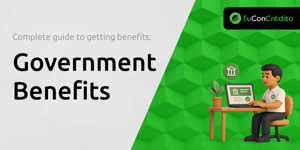In today’s digital economy, plastic cards offer both freedom and risk at your fingertips. From grocery aisles to online marketplaces, credit and debit cards have revolutionized how we pay, borrow, and build our futures. Yet with great convenience comes great responsibility. By embrace the power of informed decisions, you can transform each swipe or tap into a step toward financial security, not a stumble into debt.
Understanding Your Payment Tools
Credit and debit cards may look alike, but they behave quite differently. A debit card deducts money immediately from your linked account, ensuring you spend only what you have. It’s an ideal choice for everyday budgeting and avoiding interest charges.
Credit cards, on the other hand, let you borrow money up to a set limit, offering perks like rewards, cash back, and travel insurance. However, carrying balances can lead to interest accumulation that snowballs quickly. Understanding these distinctions is the first step toward responsible card use.
Navigating the Pros and Cons
Every form of payment carries trade-offs. Debit cards excel at helping you live within your means by drawing directly from available funds. This simplifies your monthly budgeting process and eliminates the risk of revolving debt.
Credit cards shine when it comes to perks: travel points, purchase protection, and the ability to build a credit history vital for future loans. Yet overspending or missing payments can damage your credit score and incur high interest charges.
Generational trends also influence preferences. Gen Z favors debit cards by a 60% margin to maintain spending discipline, while Gen X and Baby Boomers lean toward credit for their robust reward structures. Millennials strike a balance, with 55% using credit cards primarily for rewards and credit-building.
Key Statistics at a Glance
Numbers underscore the stakes of everyday card usage. Reviewing data can deepen your appreciation for careful financial planning.
Mastering Responsible Card Management
Turning knowledge into action requires consistent habits and clear goals. Adopt these best practices to keep your finances on track and your credit healthy:
- Pay your balances in full monthly to avoid interest charges.
- Set realistic spending limits each month and track expenses diligently.
- Monitor your accounts regularly for fraud with real-time alerts.
- Understand all fees, APRs, and grace periods before swiping or tapping.
- Keep a small number of active cards to simplify your financial overview.
Regulatory Protections and Fraud Safeguards
Federal and issuer safeguards add a vital layer of security, ensuring you’re not alone if fraud strikes or disputes arise:
- Liability for unauthorized credit card charges capped at $50 under federal law.
- Chargeback rights on disputed transactions offer a powerful financial safety net.
- Chip-enabled cards and real-time alerts have reduced fraud by nearly 18% over five years.
- Immediate reporting of suspicious activity limits your liability and preserves trust.
Digital Transformation and Emerging Trends
The payments landscape continues to evolve with contactless and digital wallets integrating seamlessly with your cards. These innovations boost security through tokenization and biometric authentication, making each transaction faster and safer.
As cash payments decline—now making up only 14% of transactions—embracing digital tools can further empower your financial journey. Yet new technology also demands heightened vigilance. Regularly update your device software, use strong unique passwords, and avoid public Wi-Fi when accessing sensitive account details.
Building a Secure and Balanced Financial Future
Your relationship with credit and debit cards mirrors larger life goals: freedom, security, and growth. By treating these tools with respect and deliberate intention, you can harness their benefits while minimizing pitfalls.
Start by crafting a personalized plan: define your monthly budget, choose the right card for each scenario, and align rewards programs with your spending habits. Keep your emergency fund separate from daily accounts so unexpected expenses don’t derail your progress.
Ultimately, responsible card use is about more than numbers; it’s about taking control of your financial destiny and fostering habits that endure. Every purchase becomes a reflection of your values—prioritizing needs over wants and viewing debt as a strategic tool, not a default path.
Whether you’re saving for a dream vacation, building credit for a future home, or simply seeking peace of mind, an informed approach to credit and debit cards lays the groundwork. With the right practices, vigilance, and a dash of foresight, you’ll transform plastic into possibility—one intentional transaction at a time.
References
- https://www.clearlypayments.com/blog/debit-vs-credit-which-payment-method-do-consumers-prefer-in-2025/
- https://use.expensify.com/blog/credit-card-statistics
- https://www.lendingtree.com/credit-cards/study/credit-card-debt-statistics/
- https://www.frbservices.org/news/research/2025-findings-from-the-diary-of-consumer-payment-choice
- https://www.sellerscommerce.com/blog/credit-card-statistics/
- https://www.nasdaq.com/articles/average-credit-card-debt-more-quarter-what-means-americans-wallets-and-economy
- https://www.ftc.gov/business-guidance/resources/complying-telemarketing-sales-rule










